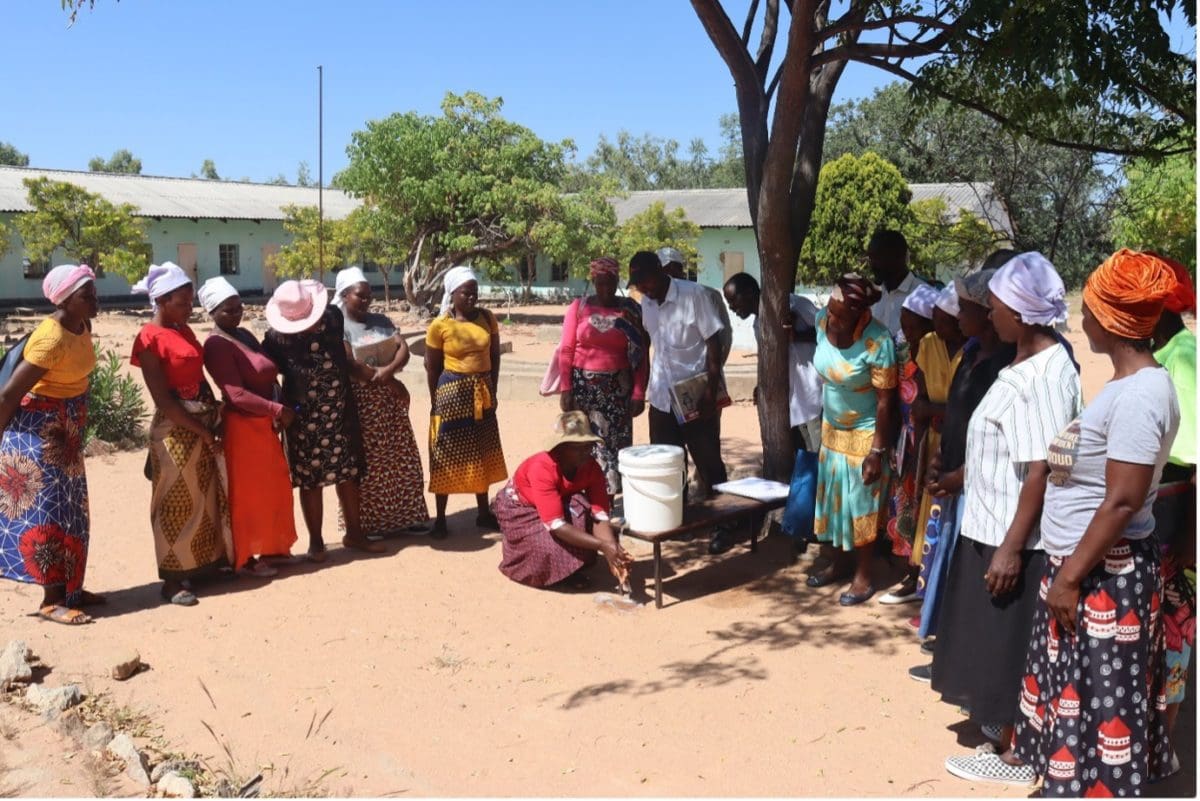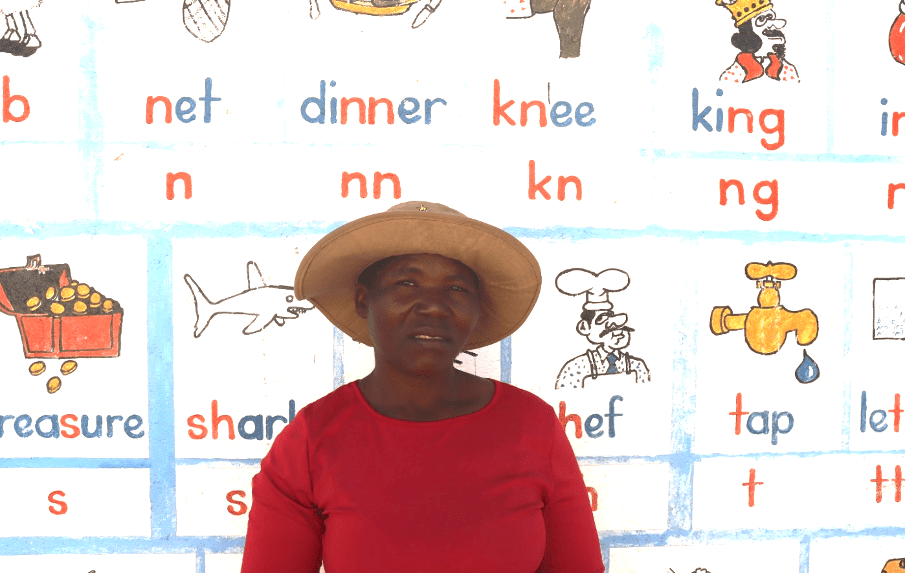Care Groups’ Impact on Water, Sanitation, and Hygiene: Nyarai Zvoushe’s Experience
In early May 2023, men and women from four villages in Ward 22, Buhera, attended a training series on the care group approach. The training aimed to upskill participants, consisting of lead mothers, lead elderly women, male champions, and village health workers, on influencing the adoption of health and nutrition behaviors in the first 1,000 days to prevent chronic malnutrition among children under five years.
One of the participants, NYARAI ZVOUSHE, a mother of five, including one child under the age of five, works as a village health worker in her community. Her vast catchment area makes reaching all people with health services difficult. However, she explains that her work is now accessible by introducing care group volunteers in the community to promote healthy behaviors, “The care group approach is welcome in our community as our numbers have increased with the addition of lead mothers, lead elderly women, and male champions to help promote healthy behaviors.”
Through the care group strategy, Takunda aims to reduce child stunting by promoting the adoption of health and nutrition behaviors among women of childbearing age, adolescent girls, and children under the age of 2 years. Nyarai, the village health worker, identifies poor water, sanitation, and unhygienic practices as one of their community’s challenges contributing to disease outbreaks such as cholera. “Some individuals are not washing hands after using a toilet, and many do not have toilets and hand washing facilities,” Nyarai shared.

Nutrition and Water, Sanitation, and Hygiene (WASH) behaviors promoted through care groups augment efforts to prevent the spread of WASH-related diseases, including cholera, which recently struck some areas in Zimbabwe, including the Buhera district. The conceptual framework for child undernutrition identifies diseases as immediate causes of malnutrition; therefore, improving WASH practices is pivotal for preventing diseases. Good WASH practices are also a key outcome to be sustained under USAID Takunda. Using the care group strategy, households are encouraged to wash their hands during the five critical moments (after using a toilet, after removing nappies/diapers from a baby, before preparing food, before eating food, and before feeding a baby), have hygiene enabling facilities including (hand washing facilities, at least two pits, double pot racks, and a Blair toilet). Communities are encouraged to drink clean water from safe sources such as boreholes and protected wells.
In the future, Nyarai pledges to team up with lead mothers, lead elderly women and male champions in her community, and work to promote the adoption of WASH practices. Besides participating in the care group, Nyarai is a Farmer Field Business School group member since her family depends on agricultural production. She produces enriched porridges, an initiative aimed at improving dietary diversity among children under five years, adolescent girls, and women of childbearing age and raising income for her family.
One of the participants, NYARAI ZVOUSHE, a mother of five, including one child under the age of five, works as a village health worker in her community. Her vast catchment area makes reaching all people with health services difficult. However, she explains that her work is now accessible by introducing care group volunteers in the community to promote healthy behaviors, “The care group approach is welcome in our community as our numbers have increased with the addition of lead mothers, lead elderly women, and male champions to help promote healthy behaviors.”
Through the care group strategy, Takunda aims to reduce child stunting by promoting the adoption of health and nutrition behaviors among women of childbearing age, adolescent girls, and children under the age of 2 years. Nyarai, the village health worker, identifies poor water, sanitation, and unhygienic practices as one of their community’s challenges contributing to disease outbreaks such as cholera. “Some individuals are not washing hands after using a toilet, and many do not have toilets and hand washing facilities,” Nyarai shared.

MAY 04, 2023: Nyarai Zvoushe, a village health worker demonstrated steps for handwashing during a care group training in Ward 22, Cluster 1 of Buhera district. © Tarusenga Huturume/ TAKUNDA RFSA
Nutrition and Water, Sanitation, and Hygiene (WASH) behaviors promoted through care groups augment efforts to prevent the spread of WASH-related diseases, including cholera, which recently struck some areas in Zimbabwe, including the Buhera district. The conceptual framework for child undernutrition identifies diseases as immediate causes of malnutrition; therefore, improving WASH practices is pivotal for preventing diseases. Good WASH practices are also a key outcome to be sustained under USAID Takunda. Using the care group strategy, households are encouraged to wash their hands during the five critical moments (after using a toilet, after removing nappies/diapers from a baby, before preparing food, before eating food, and before feeding a baby), have hygiene enabling facilities including (hand washing facilities, at least two pits, double pot racks, and a Blair toilet). Communities are encouraged to drink clean water from safe sources such as boreholes and protected wells.
In the future, Nyarai pledges to team up with lead mothers, lead elderly women and male champions in her community, and work to promote the adoption of WASH practices. Besides participating in the care group, Nyarai is a Farmer Field Business School group member since her family depends on agricultural production. She produces enriched porridges, an initiative aimed at improving dietary diversity among children under five years, adolescent girls, and women of childbearing age and raising income for her family.

